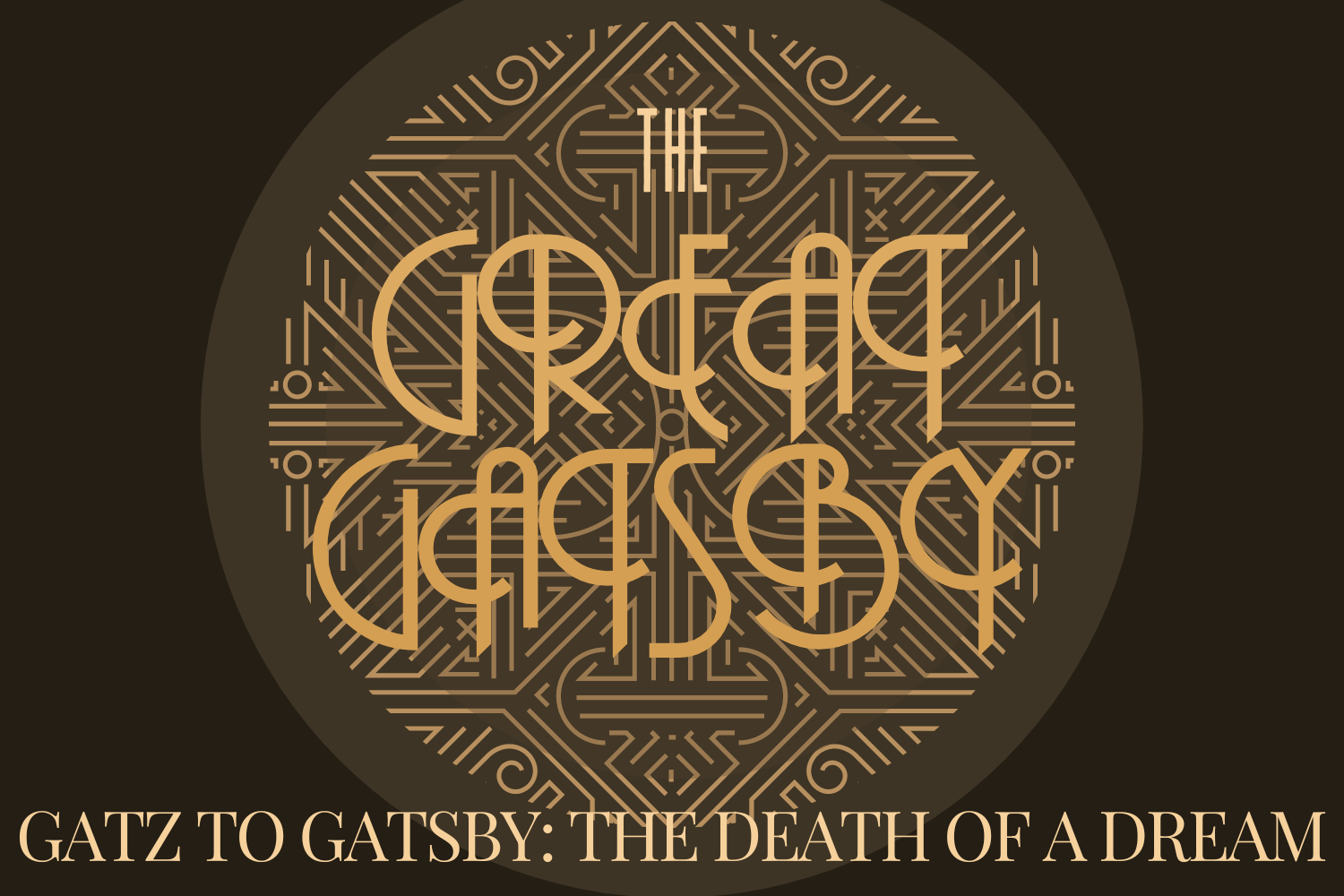
THIS ARTICLE IS NOT COMPATIBLE WITH CELL PHONES
A quick essay. For more, please read this excellent article on The Great Gatsby and its correlation to society here. [1]
In chasing their dreams, one cannot remain unchanged; in F. Scott Fitzgerald’s novel, the American Experience, for better or for worse, reinvented – and destroyed – the man Nick Carraway knew as Jay Gatsby.
Throughout The Great Gatsby, the American Dream is repeatedly alluded to; however, in order to achieve the American Dream, one must undergo the American Experience. Gatsby, in his attempts to reunite with the love of his life (his own American Dream), unwittingly stood as a martyr for the crux of the American Experience: suffering – and changing – for success. Firstly, in the first six chapters of the novel, Gatsby is described from an outsider’s perspective, leaping from rumors to hushed whispers, painting him with comments of “he’s a bootlegger” (Fitzgerald, 61), hiding his true identity among the half-truths and gossip. However, as the book progresses and Gatsby dies, his past is revealed in the form of his father’s appearance, and the book takes a turn to demonstrate the figment that was Jay Gatsby and where the real James Gatz lied underneath. Instead of being “the son of some wealthy people in the Middle West – all dead now” (65), his father – Henry C. Gatz – is described as “a solemn old man, very helpless and dismayed” (167), but very much alive and not wealthy. Gatsby’s lie about his origins highlights a critical divide between his past and present, and clearly splits his two personalities into the one of his youth – Gatz – and the product of his American Experience – Gatsby. Secondly, it is Gatsby, as a result of the American Experience, whom Nick Carraway witnesses die, not Gatz. It is Jay Gatsby, transformed by his love for Daisy, who offers to take the blame for Myrtle’s death, and whom Wilson intends to and successfully shoots in the pool on that fateful day. In his quest for Daisy’s love, Gatz underwent the American Experience, rose into the character of Jay Gatsby, and sank into a pool of his own blood, a Tantalus to the fruit of the American Dream.
Bibliography
Fitzgerald, F. Scott (Francis Scott), 1896-1940. The Great Gatsby. New York: C.Scribner’s sons, 1925.
Notes
[1] This article also inspired the logic behind the The Scarlet Letter & Unnatural Society piece on The Boston Hound.
